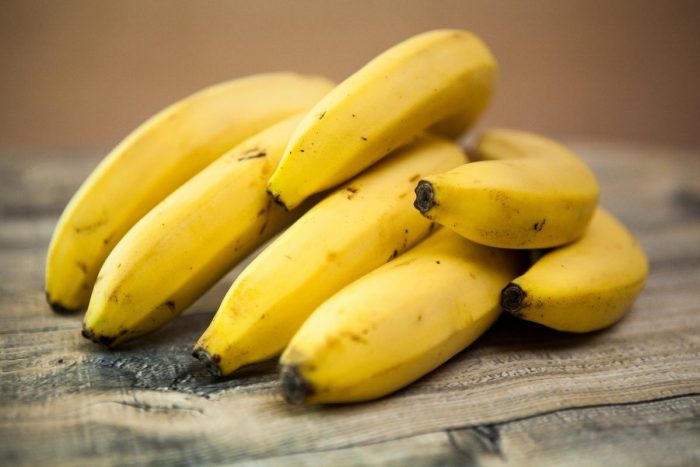Leftover banana peels are almost part of the furniture at courtside in many clubs, with the bendy yellow fruit becoming as familiar a sight as the usual gels, sports drinks, and other nutritional aids found in players’ bags.
Professional and amateur players alike from a wide variety of sports are seen eagerly munching them as part of their game-day ritual, but what are the actual benefits of consuming bananas for the squash player, and is their reputation as an athlete’s go-to snack well-founded?
Bananas are one of the most widely consumed fruits in the world, being grown in over 100 countries across the globe. Technically actually classified botanically as a berry, more bananas are consumed each year in the US than apples and oranges combined.
 One of the most common reasons given for the consumption of bananas by sportspeople and exercisers is their proposed ‘refuelling’ effect. They typically contain around 25g of energy-giving carbohydrates, just over half of which is simple sugar.
One of the most common reasons given for the consumption of bananas by sportspeople and exercisers is their proposed ‘refuelling’ effect. They typically contain around 25g of energy-giving carbohydrates, just over half of which is simple sugar.
Carbohydrate is, of course, a key element of both pre-exercise intake and post-exercise muscle energy store replenishment, and bananas are frequently seen as a good ‘natural’ option here. Studies have shown that the fructose sugar contained in bananas, however, is not actually the best carbohydrate choice for athletes when consumed in isolation. Other carbohydrates such as glucose and maltodextrin have been suggested by researchers to be more effective for these immediate pre/post-fueling purposes, with drinks such as chocolate milk proposed as better overall options for quick and convenient recovery.
So if it’s the case that bananas are of limited use immediately before and after exercise, what other benefits do they actually hold for the athlete?
It turns out the most effective use of bananas as an aid to performance for the sportsperson may be to eat them during games/training.
A study conducted at the Appalachian State University’s Human Performance Lab showed that several bananas consumed over the course of an intense cycling bout were as effective as sports drinks across a range of performance markers including work output, blood glucose levels, post-exercise inflammation, and innate immune levels. Being so soft and fleshy a fruit, there were no real reported digestion issues for any of the participants either.
The added benefit from eating bananas as a performance aid is the other nutrients that they provide.
Bananas are an excellent source of vitamin B6, as well as containing moderate amounts of other essential nutrients that play a crucial role in the body including magnesium, manganese, and potassium (believed to play some role in the prevention of muscle cramps). Bananas also contain serotonin and dopamine, which may improve the body’s antioxidant capacity and help with oxidative stress.
Interestingly there is also some anecdotal evidence (primarily from musicians performing stage recitals), that bananas may assist in some way with dampening nerves and aiding with performance anxiety.
More research is needed, but the suggestion is that bananas may be able to act as a kind of mild natural beta-blocker (drugs that are prescribed to treat various anxiety, blood pressure, and other heart-related conditions).
Bananas then are a cheap, healthy, and potentially very useful snack that is well-suited to the squash player, particularly when munched on during games/training. Current expert recommendations lean toward best results for sportspeople looking to refuel on the fly during long (1hr+) intense sessions coming from ingesting bananas alongside any normal sports drinks you use, to get the full spectrum of nutrients and electrolyte content from both.
Give it a try, and see whether a few bananas can offer you a bunch of help!
Gary Nisbet
B.Sc.(Hons), CSCS, NSCA-CPT, Dip. FTST
SquashSkills Fitness & Performance Director
Sign up to the SquashSkills newsletter
Get world class coaching tips, straight to your inbox!